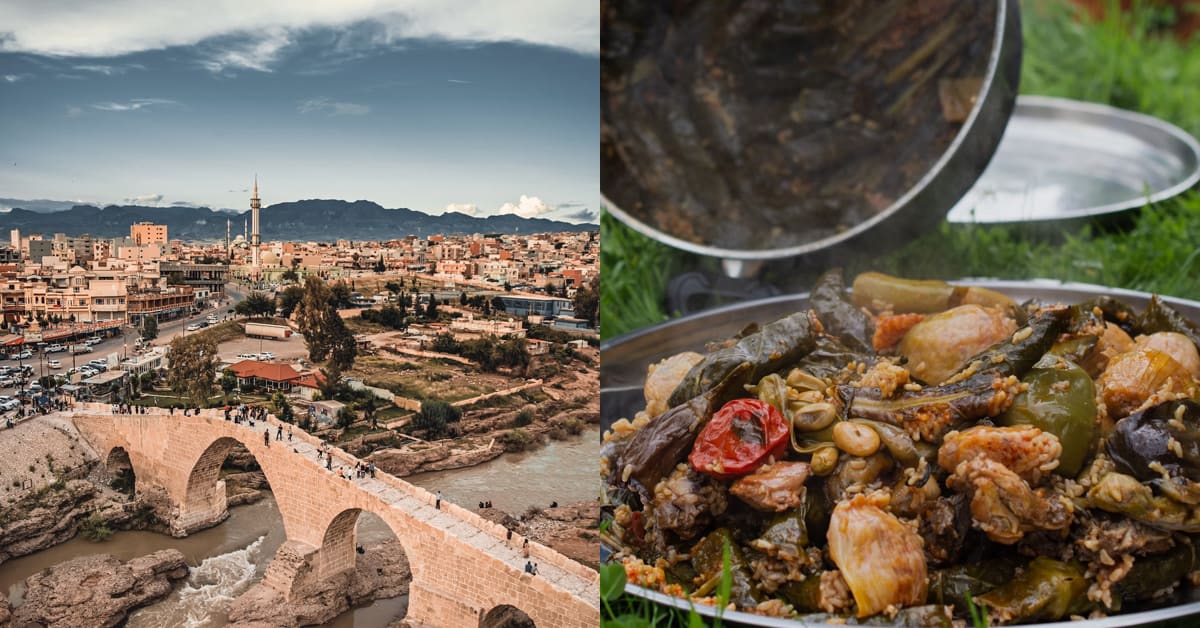Iraqi cuisine is a rich and diverse blend of flavors, spices, and cooking techniques that have been influenced by the country’s long history and cultural heritage. Iraqi food is known for its bold and aromatic flavors, with a focus on fresh ingredients and traditional cooking methods.
The cuisine is a reflection of the country’s geography, with dishes that vary from region to region, depending on the availability of ingredients and local customs. Iraqi food is a celebration of the country’s rich culinary traditions, and it is a testament to the resilience and creativity of its people.
Iraqi cuisine halal or not?
Is Iraqi food halal?
As per Islamic dietary laws, Iraqi food is halal as long as it does not contain any haram (forbidden) ingredients such as pork, alcohol, or any other intoxicants.
Most Iraqi dishes are made with halal meat, vegetables, and grains, making them permissible for Muslims to consume.
What kind of food do Iraqi eat?
Iraqi cuisine is diverse and influenced by neighboring countries such as Turkey, Iran, and Syria. Some popular dishes include:
- Kebabs: Grilled meat skewers, usually made with lamb or chicken.
- Dolma: Stuffed vegetables, such as grape leaves or bell peppers, filled with rice, meat, and spices.
- Tabbouleh: A salad made with parsley, tomatoes, onions, and bulgur wheat.
- Hummus: A dip made from chickpeas, tahini, lemon juice, and garlic.
- Falafel: Deep-fried balls made from ground chickpeas or fava beans.
- Shawarma: Thinly sliced meat (usually chicken or lamb) served in a wrap or pita bread.
- Biryani: A rice dish made with meat, vegetables, and spices.
- Maqluba: A layered dish of rice, meat, and vegetables, similar to a pilaf.
- Samosas: Fried or baked pastry filled with meat or vegetables.
- Baklava: A sweet pastry made with layers of phyllo dough, nuts, and honey syrup.
How can you tell if the food is halal in Iraq?
In Iraq, halal food is generally indicated by a halal certification label or stamp on the food product’s packaging. Many restaurants and food vendors may display a halal certificate or sign indicating that their food is prepared according to Islamic dietary laws.
It is also common for Muslims to ask the vendor or restaurant staff if the food is halal before consuming it.
Is it hard to find halal food in Iraq?
It is not hard to find halal food in Iraq as most of the population is Muslim, and it is widely available. However, in some areas, it may be more difficult to find halal food options, especially in non-Muslim majority areas.
It is always recommended to check with locals or ask for recommendations to ensure that the food is halal.
Is Iraqi food healthy?
Iraqi cuisine is generally considered healthy as it includes a variety of fresh vegetables, fruits, legumes, and lean meats. Traditional Iraqi dishes are often prepared with herbs and spices, such as cumin, coriander, and turmeric, which have health benefits.
However, some dishes, such as fried foods and sweets, may be high in fat and calories, so it is important to consume them in moderation.
What is Iraqi food similar to?
Iraqi food is similar to other Middle Eastern and Mediterranean cuisines, such as Lebanese, Syrian, Turkish, and Iranian. It features a variety of spices, herbs, and ingredients like lamb, chicken, rice, chickpeas, lentils, eggplant, and yogurt.
Some popular dishes include kebabs, falafel, hummus, tabbouleh, and biryani.
Steps to find halal food in Iraq
Here are some general steps to find halal food in Iraq:
- Look for restaurants or food stalls that advertise themselves as halal. This can be done by searching online or asking locals for recommendations.
- Check for halal certification. Some restaurants may display a halal certification from a recognized Islamic organization.
- Ask the restaurant staff if the food is halal. They should be able to provide you with information about the ingredients and preparation methods.
- Avoid non-halal ingredients such as pork, alcohol, and gelatin. These are not allowed in halal food.
- Be aware of cross-contamination. If a restaurant serves both halal and non-halal food, there is a risk of cross-contamination. Ask the staff if they have separate cooking utensils and preparation areas for halal food.
- Consider cooking your own food. If you are unsure about the halal status of a restaurant, you can always prepare your own food using halal ingredients.

